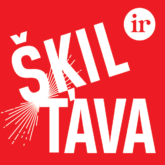Rimšēviču tur aizdomās par vismaz 100 000 eiro kukuļa pieprasīšanu
22Saistītie raksti

Intervija /
6. novembris
Mums ir laba riska apetīte

Komentārs /
11. septembris
Pirmā gada mācības

Analīze /
28. augusts
«Pavisam elementāri»

Radars /
28. augusts
Radars Latvijā

Komentāri (22)
fzss 20.02.2018. 01.05
tagad gaidām lapsenes :P
0
Sskaisle 19.02.2018. 20.48
nu un te – sekas – paši sevi iznīcinām – savu tautu un savu valsti
http://www.aluksniesiem.lv/vietejas-zinas/aluksnes-novada-domes-deputati-ceturtdien-lems-par-divu-skolu-likvidaciju-124072?cp=1#comments
1
tonijs > Dusma 19.02.2018. 21.11
A ko Tu zini- varbūt Rimšēvičs to kukuli prasīja tieši priekš lauku skolām.
0
Sskaisle 19.02.2018. 20.41
turpinājums – nolādētā bandītu valsts bļedj –
A STRING OF SCANDALS
Faced with insistent demands for payoffs and retaliation for not “cooperating”, Guselnikov said he felt he had no choice but to resort to international legal action because the problems in Latvia seemed insurmountable.
The Magnitsky case of 2008 was the first of many scandals to rock Latvia and its economy.
Shortly after Magnitsky was imprisoned, a Latvian bank called Parex became a funnel for money laundering and easy cash for politically-connected individuals, according to documents in the so-called Panama Papers, a global investigative series. Among many murky deals was a $100 million loan, against no collateral, to Zhan Khudainatov, the CEO of Russian gas company Severneft, and his brother Eduard, deputy CEO and later CEO of Russian state oil company Rosneft. The Khudainatovs defaulted on $78 million to Parex despite selling assets for $403 million in 2012, according to the OCCRP.
This defaulted loan, on top of others, contributed to Parex bank’s failure in 2008. The Latvian state rescued the bank at a cost of about $1 billion dollars, a colossal sum for Latvia. It was one of the biggest costs in a national financial crisis that increased Latvia’s national debt burden six-fold, required a bailout from the International Monetary Fund and ultimately saw a tenth of the population emigrate in search of a better life.
John Christmas, a former employee of Parex bank, said he alerted Rimsevics as back as 2005, detailing how Parex was operating illegally and not carrying out proper checks on its loans.
“They refused to talk to me,” he says. Instead, he says he began receiving death threats and had to flee the country.
“Latvia isn’t fighting against money laundering,” Christmas said. “Latvia is doing the opposite, fighting to protect the money launderers.”
1
tonijs > Dusma 19.02.2018. 20.59
Ja AB.LV nav sistēmiska banka, tad Parex tāda bija un manas domas, ka to vajadzēja glābt. Tur naudu glabāja gan daudzi Latvijas iedzīvotāji, gan pašvaldības, gan valsts iestādes.
0
Sskaisle 19.02.2018. 20.39
https://www.apnews.com/eec030c721494c7aa039a6c7c8c4d898/AP-Exclusive:-Key-EU-banker-accused-of-bribery,-Russia-ties
In a series of interviews with AP, Guselnikov laid out his story.
Guselnikov said he first met Rimsevics in 2015 after he was introduced to a man called Renars Kokins, who was said to know the country’s legal and political landscape well. Kokins invited Guselnikov to a meeting in a large villa in the suburbs of the capital surrounded by CCTV cameras. Soon after Guselnikov got there, another man arrived, on foot, and entered the house without knocking: it was Rimsevics, the head of the central bank and the country’s top financial official.
He was brief and to the point. He told Guselnikov that he could help him because the nation’s financial regulator was loyal to him personally. All he had to do was “cooperate” with Kokins, Guselnikov recalled.
Rimsevics left no more than 10 minutes later and Kokins sat Guselnikov down at a table. He pulled a pen out and wrote on a piece of paper: “100,000 per month.”
Kokins did not use the word “payment.” He explained to the banker that all Latvian banks “cooperate” in this manner.
After that meeting, Guselnikov, a U.K. and Russian citizen, decided not to pay, fearing that once he paid a bribe he would forever be blackmailed for more cash. And he did not return messages and calls from Kokins.
About a year later, Guselnikov’s brother invited him to a new friend’s birthday party. Arriving to the party, he found that his brother’s new friend was none other than Kokins, who again approached Guselnikov about the need to “cooperate.”
In the following weeks, Guselnikov tried to stall but found that every time he refused to pay, his bank would get hit with new regulatory measures. The legal complaint lists these measures as sudden increases in the amount of capital the bank needed to hold, forcing it to write down the value of assets.
These events, the complaint says, “created leverage which the Senior Latvian Official was able to deploy in his attempts to extort money from the Claimants.”
Guselnikov says he met with Kokins and Rimsevics a few more times to try to clarify his position and with each meeting, Rimsevics was increasingly impatient and said that if Guselnikov did not cooperate, his bank would be hit with enough regulatory problems to put it out of business.
Rimsevics took great care to not be seen at these meetings, Guselnikov says.
On one occasion, Kokins drove Guselnikov around the Latvian capital, Riga, for almost two hours before parking in front of a Chinese restaurant in the city outskirts. Kokins left the car and minutes later, Rimsevics entered it and sat behind Guselnikov, in the back seat, to speak for a few minutes, Guselnikov said. Another time they met in the restaurant itself, when it was completely empty.
“It was a nightmare for me for years,” said Guselnikov, who is 41. “You can’t understand how to get out of this dirty environment without reputation damage. That is why I decided to go out publicly and legally with my case. I can lose the bank, my money, but I will never become part of it.”
The AP sought to interview about a dozen officials in Latvia’s banking and state sector about Rimsevics. None would comment on the record.
___
THE RUSSIAN CONNECTION
Guselnikov says that Kokins did not only ask him for bribes, he wanted Norvik Bank to launder money. At one meeting, Kokins suggested that Norvik bank allow the transit of $100 million from Russia, and keep $1 million as a payment for the service. He said the transfer would be arranged by a man named German Miloush from Russia.
Kokins and Miloush were partners in business, according to corporate filings that show Kokins worked for Miloush’s BMW dealership in Riga, signing annual reports.
Miloush himself is an internationally wanted criminal. He was convicted in 2007 in Latvia for bribing politicians and fled the country. Ten years later, he was arrested on an Interpol warrant upon arriving in Cyprus, an EU member state, from Moscow.
Once again, he fled. He reportedly failed to show up for a Sept. 5 court date in 2017 and has been at large since. Latvia’s anti-corruption agency did not reply to repeated requests for comment on Miloush’s status.
Russian border records obtained by the AP show that Kokins flew from Moscow to Cyprus just before Miloush dodged his extradition hearing. The data, which could not be independently verified by the AP, also show Kokins has been travelling about once a month to Russia, sometimes only for a few hours, since at least 2010.
The data also show Rimsevics has visited Russia regularly in recent years — making at least 8 trips since 2010. Most of those were before Latvia was allowed into the EU’s currency union, the euro, in 2014 and before the invasion of the Crimean Peninsula that triggered Western sanctions against Russia. After that, the data show Rimsevics visited Russia via Belarus, a neighboring Russian ally that shares border data with Moscow.
On one trip, in 2010, Rimsevics went on what appears to be a hunting trip, according to photos obtained by the AP. In one of the photos, he is pictured with Dmitry Pilshchikov, who was then the head of the Research Institute of Information Technology, a Russia-owned military tech company later sanctioned by the U.S.
The photo suggests a friendly gathering in a wood cabin: conversation and laughter around a meal, a bottle of liquor and instant coffee. A guitar lies on the table and an assault rifle hangs on the wall.
Pilshchikov’s boss at the time of the photo was Sergey Chemezov, an old-time ally and friend of Vladimir Putin since the 1980s. After the Crimean invasion, the company was sanctioned by the U.S. Chemezov continues to run Russia’s main arms conglomerate, Rostec.
Mark Galeotti, a senior research fellow at the Institute of International Relations Prague and an expert on Russian financial crime, says that the optics of the trip aren’t good for someone in Rimsevics’ position.
“It’s not the same as if he were running a taxi company,” Galeotti said.
The risk of blackmail is particularly high in the case of Russia, which he says actively tries to leverage foreign officials through corruption. Putin has in recent years sought to re-impose Russian influence in Eastern Europe, where countries like Latvia and Ukraine have tried to shake off Moscow’s power and align themselves more closely with the EU and U.S.
“They regard corruption as a way of exerting influence,” Galeotti says of Russia and its secret services, which he says largely controls the business of money laundering out of Russia.
In the case of Rimsevics, the risk is also high given the state secrets he has access to. As a member of the ECB’s governing council, he is privy to market-moving data and shapes decisions at the central bank, which sets monetary policy for the 19 EU countries that use the euro. The way the governing council is set up, Rimsevics, as the Latvian member, has one vote on policy matters like interest rates or monetary stimulus programs — the same as officials from the biggest nations like Germany or France.
And as a top official in Latvia he has access to confidential NATO and EU information, such as war preparation plans, secret services’ reports and the state of vital infrastructure.
Latvia’s own secret services said in its last annual review that Russia is targeting the country’s state officials and is after state secrets. In particular, they say that “Russia’s security services will increase their focus on residents of Latvia making private or official visits to Russia or who have contacts with Russian subjects.”
___
1
tonijs > Dusma 19.02.2018. 20.48
Jā, 100 tūkstoši mēnesī- tas jau izklausās ticamāk. Rimšēvičs- Krievijas spiegs? Kaut kā negribas ticēt. Skat, vecais zēns Milušs arī uzpeldēja. Īsts krimināltango.
0
Sskaisle 19.02.2018. 20.31
https://www.apnews.com/…/AP-Exclusive:-Key-EU-banker-accuse…
kāpēc KNAB šodien teica, ka Rimševicu nepratināja Norvik sakarā? Reku NORVIK puiši saka , ka izspiedējs bija Rimševics
1
J.šveiks > Dusma 19.02.2018. 20.36
reku tepat latviski
https://www.diena.lv/raksts/latvija/zinas/_norvik-banka_-rimsevics-gadiem-ilgi-izspiedis-kukulus-un-pieprasijis-atmazgat-krievijas-naudu-14191556
1
Sskaisle > J.šveiks 19.02.2018. 20.44
smukulīti – ap info rimševics ir minēts vārdā un tur vēl citi konkrēti vārdi un uzvārdi minēti – izlasi
0
Ivars Birkāns69 19.02.2018. 20.13
gāganu kari
0
J.Biotops 19.02.2018. 19.38
Aizdomīgi daudz sagadīšanos. Man jānotic, ka Rimšēviča aizturēšana tikai nejauši laikā sakritusi ciem notikumiem, kas katrs atsevišķi izskatās vismaz ierastā preses trokšņa vērti. Pēdējo dienu plūsma – amerikāņi uzbrauc ABLB, tā žēli lūdz naudiņu, jo citādi miršot, (un dabū, tikai mazāk, kā lūgts), Sprūdu izlaiž no ķurķa (drošības pusmiljons atrodas momentā), Rimšēvičs fiksi prom, pēc ilgas kratīšanas mājā un kabinetā vēl fiksāk atpakaļ… Tomēr viņu KNAB neknābājot ne par pēdējā laika notikumiem, ne par Latvijā esošām bankām, bet it kā par kaut ko senu un izbijušu, varbūt Trasta banku, varbūt par ko pagaidām nezināmu. Publiski lasāmie cipari un notikumi tādi, kas neprasīja sestdienas nakts darbu un tādu traci. Sevišķi, ja nupat Rimšēviču palaiž, aizturēšanas laika pagarināšanai uz tiesu nestiepj. Nav iemesla vai nav argumentu? Paralēli visam Martinsona sāga, vai ik ne kārtējā.
Ja izmeklētāji tīšām laiž publikai miglu, lai kādas man nezināmas radībiņas, savu ēdienkarti zinošas, priekšlaicīgi nenoraktu galus, nenotītos vai neiedarbinātu aizsardzībai augstākus spēkus, tad viss ok. Diemžēl šis nav vienīgais variants. Jāgaida.
2
andrejs > J.Biotops 19.02.2018. 22.02
Sprūdu izlaiž no ķurķa
——————-
Vienalga Sprūds vainīgs, bet Rimševics mūsējais!
0
QAnon > J.Biotops 20.02.2018. 02.38
“Sprūdu izlaiž no ķurķa (drošības pusmiljons atrodas momentā)”
.
Kad pusmiljonu pārrēķini krutkā un kontrabandas smēķos, liekas baigi daudz, bet priekš jurista tā nav liela summa, turklāt juristiem ir arī savi draugi, kas to naudu vienmēr var aizdot. Es domāju, ka ASV prezidenta administrācija alfabētā ir nonākusi līdz “l” un tagad nopietni ķērusies klāt Latvijai un tad skaties, var gadīties ka uz Saeimas vēlēšanām tavi elki visi sēž, gājuši bojā nelaimes gadījumos, vai pievienojušies bēguļojošiem noziedzniekiem Krievijā, vai kāds mīkstais nosprādzis aiz bailēm un nebūs par ko balsot.
0
J.šveiks 19.02.2018. 19.36
ja nav noslēpums , vai kautko ir saņēmis , vai tikai pieprasījis , par to jau nekādu sodu nevar piespriest , 8 stundas pratināja , vēl lidz vieniem bija laiks , man liekas ka tas bijis teātris , par visiem sprieduši ar kādu kompromisu var šo lietu glābt , beigās pec 3 gadu izmeklēšanas iedos nosacītu sodu
0
Sskaisle 19.02.2018. 16.23
man atkal cits kreņķis – bet ko valsts – knab un citi tad mums var pateikt ablv un norvik sakarībā
‘
kas notika ar martinsonu ? tas tur nejauši pa kājām gadījās vai kā
kāpēc man ir tā sajūta ka mus te grib mānīt kā saka brāļi krievi – pa lielam
un ja run a ir par kukula izpsiešanu – kāpēc jāpratina sestdienā un pa nakti?
1
tonijs > Dusma 19.02.2018. 17.36
Rimšēvičam alga ir 150 tūkstoši, viņš nebūtu ķēpājies ar 100 tūkstošu kukuli. Summa jāreizina vismaz ar 3, lai viņam būtu interesanti. Piekrītu Biotopam par nesamērīgi mazo drošības naudu. Sāk izskatīties pēc vilka (amerikāņu) paēdināšanas, lai kaza (Rimšēvičs) paliktu dzīva.
0
J.Biotops 19.02.2018. 15.57
Vismaz 2 jautājumi:
1. Kā pierādīs pieprasīšanu, tā lieta nav no vieglajām. Laikam cerība, ka datorā palicis kaut kas vieglprātīgi neizdzēsts, bet pat tad tas nebūs @-pasta teksts “iedod 100 000, tad dabūsi, ko prasīji”. Neviens te nav tik dumjš, lai nezinātu, kā tādas lietas kaŗtojamas.
2. Drošības naudas un “darījuma” samērs. Ja kukulītī pieprasīti un pieņemti (tā te rakstīts) VISMAZ 100 000, tad drošības nauda darījuma minimālās vērtības apmērā rada šaubas par pašu prasītāju pārliecinātību.
3
+1
0
Atbildēt
+1
-1
Atbildēt
+2
-1
Atbildēt
+2
0
Atbildēt
@traductrice > J.Biotops 19.02.2018. 16.53
darījumā parasti ir 2 puses. Jādomā, ka otrai pusei tomēr ir ko likt galdā.
0
kolpants > J.Biotops 19.02.2018. 17.02
Обычно что-то где-то да остается, следы какие-то. Но очень смущает внезапный выезд Римшевица аккурат за день до обыска из страны…
0
rinķī apkārt > J.Biotops 19.02.2018. 18.22
J.Biotops Negribas ticēt, ka KNAB tā bez iemesla sāka kratīt Latvijas Bankas prezidentu :) Neviens taču tur nav pašnāvnieks. Vai pierādīs vainu, tas cits jautājums, taču meklēt šajā notikumā intrigu, domāju ka nav pamata.
Lai gan – Progresīvajiem gan ir citas domas. “Partija PROGRESĪVIE pauž izbrīnu un satraukumu par iespējamu ļaunprātīgu politiskās varas pārdali saistībā ar Latvijas Bankas prezidenta Ilmāra Rimšēviča aizturēšanu. Aizdomas par to rada vienotās valdošās koalīcijas politiķu paustās prasības Latvijas Bankas prezidentam Ilmāram Rimšēvičam atkāpties no amata……PROGRESĪVIE modri sekos līdzi situācijas attīstībai un arī šoreiz cels trauksmi, ja tiesībsargājošās iestādes savā darbā būs kūtras.” :)
http://www.progresivie.lv/2018/02/19/aizdomas-par-varas-pardali/
1
QAnon > rinķī apkārt 20.02.2018. 01.37
Progresīvo barvedis ir no tās pašas noziedznieku bandas, no kuras čekas kurmis Bordāns, no LC.
0